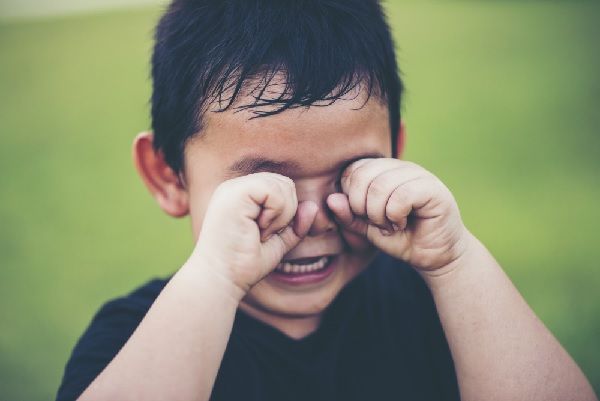
While Legislation Bans Corporal Punishment, More Parenting Support Should be Provided to Parents
The Ministry of Justice recently announced a draft amendment to Article 1085 of the Civil Code. Based on the spirit of the Convention on the Rights of the Child, the right of parents to discipline their children, which was originally granted, is redefined as the right to protect and educate their children, and the use of "physical and mental violence" is restricted. In other words, the draft believes that corporal punishment, which is a form of parenting that uses physical and mental violence, is not a legitimate right of parents. This has sparked discussions among parents, with many expressing dissatisfaction and anger in comments, saying that they are concerned about how to discipline their children in the future, and that they don't want the government to be involved in their parenting and be penalized for it.
Why shouldn’t parents corporally punish their children?
There are several important reasons why the Convention on the Rights of the Child opposes corporal punishment, the most important of which is that "corporal punishment is bound to lead to a derogation of personality.” It is a humiliating process of using authoritarianism, violence, physical pain to force a person to submit and make an unwilling response. Secondly, "corporal punishment may cause serious harm to the physical and mental development of children.” In recent years, many long-term, large-sample, retrospective, and meta-analytical studies have shown that corporal punishment has negative effects on the physical and mental health of children and parent-child relationships, and may form a cycle of violence passed down through generations. Third, the Convention "emphasizes the principle of equal protection under the law for adults and children.” That is, children should possess the same protection against violence as adults. Our country's laws do not allow any violent behavior towards adults. In fact, even prisoners are protected by the prohibition of corporal punishment regulations. If it is inappropriate and illegal to physically punish adults who make mistakes, and if adults are legally protected in any setting including families from violence, the same legal protection should be applied to children.
Therefore, in General Comment No.8 of the Convention on the Rights of the Child, many principles and recommendations for protecting children from corporal punishment through legislation are proposed, including: only prohibiting serious abuse, which is not enough to protect children from humiliating forms of punishment(Point 30); calling for the abolition of laws allowing for some degree of violence against children(Point 31); and explicitly prohibiting corporal punishment in civil or criminal code(Point 34). In response to concerns from parents about being punished for corporal punishment after the law is amended and about how to discipline children in the future, General Comment No. 8 also specifically points out that the purpose of banning corporal punishment is to prevent child abuse, change the public's attitude and habit of using violence against children (Point 38), and not to punish parents. Therefore, the government should develop effective reporting mechanisms, adhere to the principle of non-prosecution for minor offenses, and provide supportive and educational services to parents rather than punitive intervention(Point 40).
According to a research conducted by Child Welfare League Foundation(CWLF), from 2014 to 2022, there has been a significant increase in Taiwanese people's opposition to corporal punishment. The proportion of those who agree that "children should not be hit no matter what reason" has increased from 37.0% to 53.6%, and the proportion of those who agree that "regardless of the severity, corporal punishment is a form of violence" has increased from 46.6% to 73.1%. However, there are still significant differences in people's understanding of what constitutes corporal punishment. Therefore, CWLF believes that the government should strengthen communication and discussion with the public to establish a consensus on the forms of corporal punishment.
Alternative measures to corporal punishment
Legislating against corporal punishment is just the beginning of protecting children from any form of violence, as required by the Convention on the Rights of the Child. Beyond legislation, it is equally important, if not more challenging, to establish supportive administrative, social, and educational measures. As many parents wonder, what other ways are there to educate their children instead of corporal punishment? Parents need the government to invest in more supportive and educational services, such as strengthening the functions of existing family education and parent counseling units, providing parenting consultations and diversified parenting support services, and offering respite care services. All the services aim to help parents learn non-violent and more positive ways of raising their children and solve the difficulties they face in daily childcare.
This article is republished from 獨立評論@天下.


